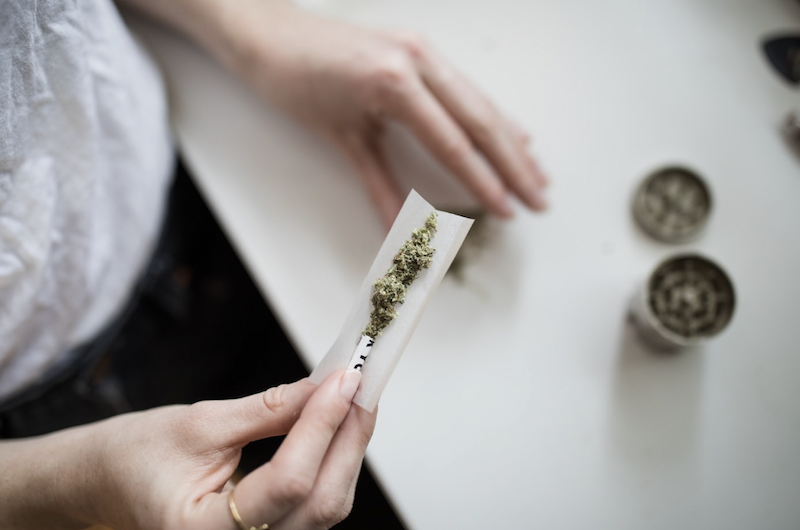Vermont’s laws regarding driving under the influence (DUI) of cannabis remain stringent despite the legalization of recreational cannabis.
The state has established a regulatory framework that prohibits operating a vehicle while impaired by any drug, including THC,
The key elements of Vermont’s cannabis DUI laws, including legal definitions, enforcement practices, penalties for violations, and the implications of drug testing.
Legal Framework
THC Legality in Vermont
THC derived from both hemp and marijuana is legal in Vermont. The state legalized recreational marijuana use in 2018 under H.511, allowing adults aged 21 and older to possess up to one ounce of marijuana and cultivate up to six plants for personal use.
Despite this legalization, Vermont does not set a specific legal limit for THC concentration in drivers’ blood, unlike some states that have adopted per se limits
DUI Definition
According to Vermont law (Vt. Stat. Ann. tit. 23, § 1201), a person is guilty of DUI if they operate a vehicle while under the influence of any drug to a degree that renders them incapable of driving safely
This includes impairment from THC products, regardless of whether they are legally obtained or used for medicinal purposes.
Affirmative Defense and Implied Consent
Importantly, having a prescription for medical marijuana does not serve as an affirmative defense against DUI charges
Furthermore, Vermont operates under an implied consent law; if a driver refuses to submit to a sobriety test when requested by law enforcement, their license will be suspended for a minimum of six months
Enforcement Practices
Drug Recognition Experts (DREs)
Vermont employs Drug Recognition Experts (DREs) who are specially trained to identify signs of drug impairment in drivers. These officers are equipped to conduct thorough evaluations that include physical tests and observations to determine whether a driver is impaired by substances like THC
DREs play a critical role in enforcing DUI laws as they can provide expert testimony in court regarding the impairment levels observed.
Sobriety Checkpoints
Law enforcement agencies in Vermont are authorized to conduct sobriety checkpoints without needing probable cause or individualized suspicion of illegal activity. This practice is intended to deter impaired driving and enhance road safety.
Penalties for DUI Violations
Vermont imposes significant penalties for DUI offenses related to cannabis:
- First Offense: A maximum fine of $750, imprisonment for up to two years, or both; mandatory license suspension for 90 days.
- Second Offense: A fine up to $1,500, imprisonment for up to two years or community service; license suspension for 18 months.
- Third and Subsequent Offenses: Fines can reach up to $2,500 with imprisonment up to five years; lifetime license suspension may apply
Additionally, all offenders must pay related surcharges and may be required to undergo drug counseling or install an ignition interlock device on their vehicles.
Drug Testing and Detection
In Vermont, refusing a chemical test (blood, breath, or urine) when suspected of DUI has significant consequences under the state’s implied consent laws. Here are the specific penalties for refusing a drug test:
Consequences of Refusing a Drug Test for DUI in Vermont
- License Suspension:
- First Offense: A six-month suspension of the driver’s license.
- Second Offense: An 18-month suspension.
- Third or Subsequent Offenses: A lifetime suspension of the driver’s license.
- Criminal Charges: If the individual has prior DUI-related convictions, refusing a test can lead to a charge of criminal refusal, which is treated as a separate offense from DUI.
- Hearing Rights: Drivers have the right to request a hearing to contest the suspension. However, this must be done within a specified timeframe after the refusal.
These penalties reflect Vermont’s strict approach to impaired driving and reinforce the importance of compliance with chemical testing when requested by law enforcement
Testing Methods
Various methods are employed to test for THC impairment in drivers, including blood tests and assessments by DREs. However, THC can remain detectable in the body long after its psychoactive effects have worn off. This raises concerns about the accuracy of using blood tests alone as evidence for impairment at the time of driving
Challenges with THC Detection
Unlike alcohol, where a specific blood alcohol concentration (BAC) can be directly correlated with impairment levels, establishing a reliable threshold for THC is complex. Research indicates that many individuals may test positive for THC without being impaired at the time of driving due to the compound’s lingering presence in the body
This can complicate enforcement efforts and does raise questions about potential wrongful convictions based solely on drug test results.
Public Safety Campaigns
Vermont actively participates in national campaigns aimed at raising awareness about impaired driving. Initiatives such as “Buzzed Driving is Drunk Driving” and “Drive Sober or Get Pulled Over” emphasize the dangers associated with driving under the influence of alcohol or drugs
.These campaigns aim to educate the public on safe driving practices and encourage responsible behavior among cannabis users.
Penalties for First-Time DUI Involving THC
- Incarceration: A first-time offender may face up to 2 years in prison.
- Fines: The maximum fine is $750.
- License Suspension: There is a mandatory 90-day suspension of the driver’s license
Additional Considerations
- Impairment Standards: Vermont does not have a specific legal limit for THC while driving, but operating a vehicle under the influence of any impairing substance, including THC, is illegal. This means that drivers can be charged with DUI if they are found to be impaired by THC, regardless of the amount present in their system
- Sobriety Testing: Law enforcement may conduct sobriety tests or blood tests to determine impairment due to THC
These penalties reflect Vermont’s serious stance on impaired driving, regardless of whether the substance involved is alcohol or drugs like THC.
Conclusion
As Vermont continues to navigate the complexities surrounding cannabis legalization and road safety, its DUI laws reflect a commitment to ensuring public safety while recognizing the legal status of marijuana use. The absence of a specific THC limit presents challenges for law enforcement and raises critical issues regarding how impairment is assessed and prosecuted. Awareness campaigns and ongoing training for law enforcement personnel remain vital components in addressing these challenges effectively. As laws evolve, continued education on responsible cannabis use and its implications for driving will be essential in promoting safe roads across Vermont.

 Cannabis News2 years ago
Cannabis News2 years ago
 One-Hit Wonders2 years ago
One-Hit Wonders2 years ago
 Cannabis 1012 years ago
Cannabis 1012 years ago
 drug testing11 months ago
drug testing11 months ago
 Education2 years ago
Education2 years ago
 Cannabis2 years ago
Cannabis2 years ago
 Marijuana Business Daily2 years ago
Marijuana Business Daily2 years ago
 California2 years ago
California2 years ago

















